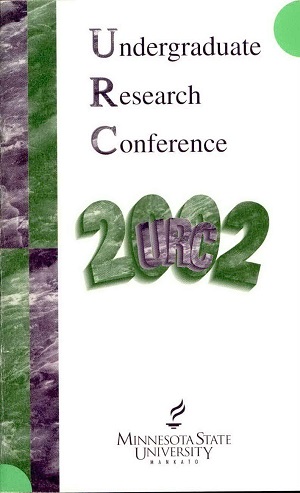Effect of Voluntary Gestational Exercise on Body Specific Gravity and Kidney Development in Adult Offspring
Location
CSU
Student's Major
Biological Sciences
Student's College
Science, Engineering and Technology
Mentor's Name
Penny Knoblich
Mentor's Department
Biological Sciences
Mentor's College
Science, Engineering and Technology
Description
We have previously demonstrated altered body weight and systolic blood pressure (SBP) in the offspring of exercised hypertensive dams. The intent of this study was to examine kidney development and body specific gravity in these offspring with exacerbated hypertension. Twenty-four female SHRs were randomly assigned to 1 of 3 groups: exercise during gestation (E), exercise prior to and during gestation (PE), and sedentary (S). Kidney weight (KW), nephron number (NN), and SO were determined at 27 wks. NN was determined using an acid maceration technique. SO was determined by hydrostatic weighing. The male and female E offspring possessed significantly higher SO while no significant differences were found in KW or NN. These results suggest the increased SBP observed in the offspring of exercised SHR dams is not mediated by a deficit in NN or KW, and moderate gestational exercise may generate a positive effect with respect to body composition. Supported by the College of Graduate Studies and Research.
Effect of Voluntary Gestational Exercise on Body Specific Gravity and Kidney Development in Adult Offspring
CSU
We have previously demonstrated altered body weight and systolic blood pressure (SBP) in the offspring of exercised hypertensive dams. The intent of this study was to examine kidney development and body specific gravity in these offspring with exacerbated hypertension. Twenty-four female SHRs were randomly assigned to 1 of 3 groups: exercise during gestation (E), exercise prior to and during gestation (PE), and sedentary (S). Kidney weight (KW), nephron number (NN), and SO were determined at 27 wks. NN was determined using an acid maceration technique. SO was determined by hydrostatic weighing. The male and female E offspring possessed significantly higher SO while no significant differences were found in KW or NN. These results suggest the increased SBP observed in the offspring of exercised SHR dams is not mediated by a deficit in NN or KW, and moderate gestational exercise may generate a positive effect with respect to body composition. Supported by the College of Graduate Studies and Research.




